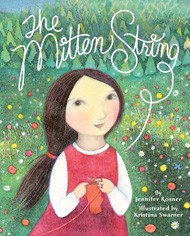The plight of the deaf in the Jewish community has probably received less attention than that of the blind, and certainly, these days, of the autistic. In this beautifully written memoir, Jennifer Rosner shares her shock and despair after discovering that both her daughters have been born deaf, and how those sentiments grew into acceptance and deeper love.
What complicates her path and that of her family is that unlike blindness, dealing with deafness has become “politicized” — with controversy surrounding the choice of hearing aids, cochlear implants, and sign language. Rosner also must cope with her mother, whose vanity and remoteness actually cover up hearing loss. She discovers a multigenerational history of deafness in her family, going back to Eastern Europe, and imagines (in what I think are the book’s weaker moments) how her ancestors coped with their isolation.
The author’s fears of being unable to communicate with her daughters, give them opportunities to socialize, and protect them in a world often indifferent or cruel will touch any parent struggling to find common ground with a challenged child. Make that, any parent, period.

Nonfiction
If a Tree Falls: A Family’s Quest to Hear and Be Heard
By
– August 30, 2011
Barbara Trainin Blank is a freelance journalist and arts previewer/reviewer, as well as sometime playwright based in Harrisburg, PA.
Discussion Questions
Courtesy of Feminist Press
1) What are the choices that Rosner and her husband face, as parents of a newborn deaf baby?
2) What considerations would you find most compelling, if you were faced with such choices?
3) How does Rosner’s exploration of deafness go beyond the literal inability to hear?
4)What role does imagination play for Rosner, as mother and author?
5) How does the metaphor of string function throughout the book?
6) How does Rosner’s ancestral backstory (in its real and imagined detail) function in the contemporary storyline?
7) How much do you know about your ancestors, and how does that knowledge function in your lives?

Jewish literature inspires, enriches, and educates the community.
Help support the Jewish Book Council.



